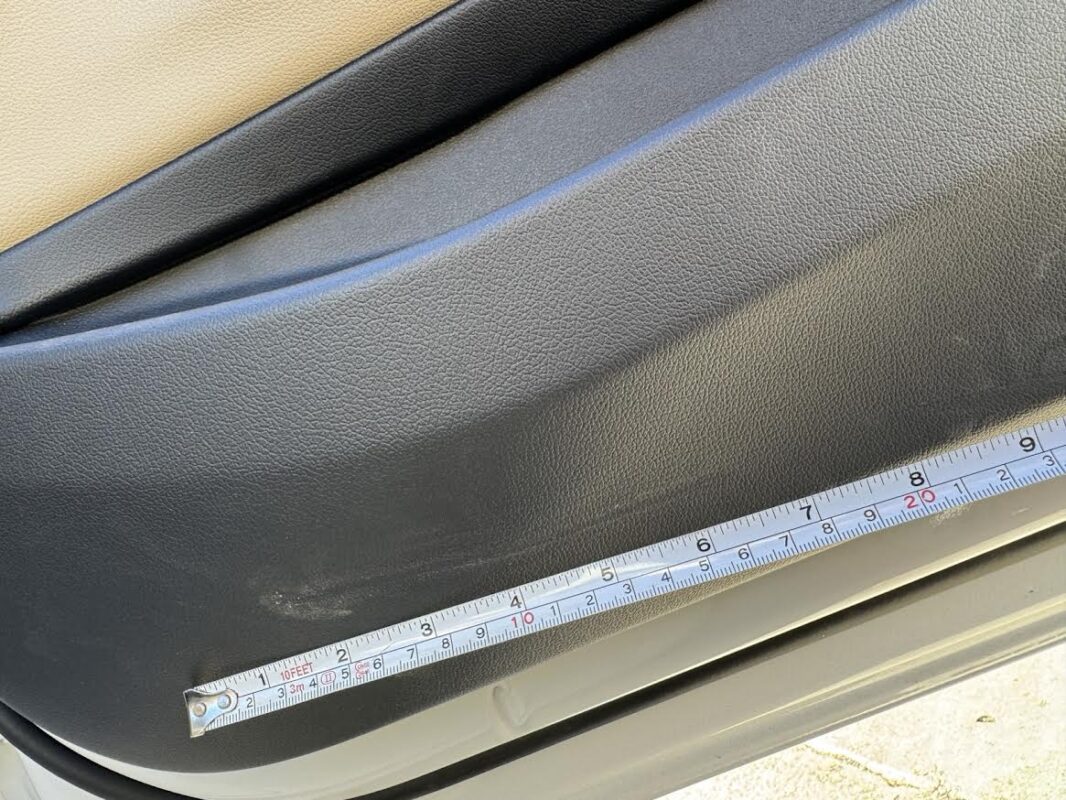Nancy Epstein gets a repair bill for $3,000 after renting a Turo. But what’s it for? And does she have to pay?
Question
My husband and I rented a Turo for a week while we were visiting San Diego. We paid for “minimum protection” just to be on the safe side. We did not take any photos of the car in the app before or after because we took great care of the car.
The day after we returned the car, I received a bill from Turo claiming $3,000 in damages (which just so happens to be the most I would be required to pay with the protection plan I purchased).
The owner took photos and there are some minor scuffs on the black interior trim. The invoice covered the cost of replacing three interior panels. This seems like a complete scam, especially since normal wear and tear does not qualify as damage.
I don’t think I should have to pay the $3,000, and this owner shouldn’t be allowed to rent out her car if she claims that minor scuffs are not normal wear and tear. Can you help me? — Nancy Epstein, Boston
Answer
You’re right — your Turo bill looked suspicious. Not only did it coincidentally cover your entire deductible, but the evidence of the damage looked inconclusive.
First, a few details about your rental. Turo is like Airbnb for your car, so you are renting someone else’s vehicle. This was a late model BMW 4 Series, so any repairs are bound to be expensive. You also selected the bare-bones coverage with a high deductible, which meant you were on the hook for damages of less than $3,000.
What are Turo’s insurance plans?
Turo offers three levels of protection, ranging from “minimum” to “premier.”
Here’s what you get:
- Liability Insurance: Turo’s plans provides coverage for damages or injuries caused to third parties, up to $1 million. It also includes coverage for theft, fire, and vandalism. The cost of this plan is 20 percent of the rental price, with a minimum charge of $15 per day.
- Collision Damage Waiver (CDW): This plan reduces the guest’s liability for damage to the rented vehicle from $1,500 to $500. It covers collision, theft, vandalism, and glass breakage. The cost of CDW is 30 percent of the rental price, with a minimum charge of $30 per day.
- Premium Protection Package: This package includes both liability insurance and CDW, as well as additional services such as roadside assistance and trip interruption protection. The cost of the Premium Protection Package varies depending on the location and type of vehicle, but it typically ranges from $40 to $70 per day.
The minimum plan you selected costs 18 percent of the trip price. It includes the minimum amount of third-party liability insurance coverage required by California. Your coverage is secondary to any personal insurance you may have. And it covers physical damage with a $3,000 deductible. (For more information on car rental insurance, see my ultimate guide to renting a car.)
But who is responsible for your Turo?
Are you responsible for damage that you didn’t do? Yes. If your Turo host discovers a ding or dent after you rent the car, you’re on the hook for it.
I reviewed the photos of the alleged damage. The images were inconclusive.

There might have been a scuff to the back panel, but it could have also been the light hitting the panel the wrong way. For a $3,000 repair bill, I would have expected to see a panel that was visibly dented, if not ripped off the inside of the car. (Related: My Turo rental was repossessed. Can you help me get my son’s epilepsy medication back?)
Avoiding this problem is easy. You could have taken “before” and “after” photos of the car. You can use the Turo app for iOS or Android to do that. The app even applies a timestamp so that you can verify when you took the picture. Unfortunately, you didn’t do that. (Related: When renting a car, no good deed goes unpunished.)
I’m concerned about one thing you said in your request for help. You referred to what happened as normal “wear and tear.” When you’re renting someone’s car through a service like Turo, you want to return the vehicle in the same condition you found it (if not better). Please take good care of your Turo car.
There are too many unanswered questions to dismiss this case
I thought there were just too many unanswered questions about your rental. How did Turo come up with the $3,000 bill? What kind of damage had the vehicle sustained? (You say you didn’t notice anything in the back seat and did not carry anything in the back of the BMW that would have damaged it.) You could have sent these questions to Turo via the executive contacts that I publish on my consumer advocacy site.
I asked Turo about the claim. I thought you deserved to have more information about the type of repairs needed to your vehicle before paying the bill. A Turo representative responded directly to you and said that based on a review of the evidence, it has determined that you are not responsible for the damages reported by the host. (Related: Was I scammed by my car rental company?)
“As a result, we are pleased to inform you that we will be closing the claim and you will not owe anything for damages at the present time,” it added.
About this story
Car rental companies have traditionally earned most of their profits from the sale of insurance, so it’s no surprise that Turo would take a page from their playbook. But some of these insurance rates are out of control — more, even, than the cost of the car itself. And if you have insurance, you should reasonably expect to be covered for a minor scuff. I’m grateful to my advocacy team — Mel Smith and Dwayne Coward — as well as to our community moderators (thank you, Will Leeper) and our editing team under the watchful eye of Andy Smith. Dustin Elliott did the illustration. I advocated this case, wrote the story and fact-checked it.




